Filter job offers
IT Job Offers

Senior Python Engineer
emagine Polska
Remote
Contractor
Senior

Senior Blockchain Engineer
MoonPay
BarcelonaBucharestLisbonKrakowLondonNew York CityRemote
Employment contract
Senior

Senior Data Analyst
Appodeal
BarcelonaRemote
Other
Senior

Developer Relations Engineer
Telnyx
AmsterdamDenverKrakowDublinRemote
Other
Mid/Regular

Java Software Engineering Team Lead
Develocraft
Gdansk
Employment contract
Lead / Principal
24 000 - 29 000 PLN

Java Software Engineer
Develocraft
Gdansk
Employment contract
Mid/Regular
12 000 - 18 000 PLN

Software Engineer - Backend - SaaS
Altium
WroclawRemote
Employment contract
Senior

QA Engineer
emagine Polska
Remote
B2B contract
Senior
100 - 100 PLN
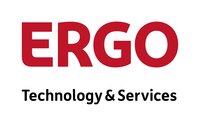
Software Engineer (AEM)
ERGO Technology & Services S.A.
WarsawGdansk
Employment contract
Mid/Regular

Senior Software Engineer (AEM)
ERGO Technology & Services S.A.
WarsawGdansk
Employment contract
Senior

Team Lead - Hosting Operations
Develocraft
Gdansk
Employment contract
Lead / Principal
25 000 - 32 000 PLN

Senior Azure DevOps Engineer
Develocraft
Remote
B2B contract
Senior
24 000 - 27 200 PLN

BI Developer with Snowflake
Holisticon Connect Sp. z o.o.
Remote
B2B contract
Mid/Regular
19 200 - 22 400 PLN

Device Management Engineer
Develocraft
Remote
B2B contract
Mid/Regular
28 000 - 32 000 PLN

Automation Tester
emagine Polska
Warsaw
B2B contract
Mid/Regular
22 400 - 25 600 PLN

Mid Fullstack Developer (.NET, React)
emagine Polska
WarsawRemote
Contractor
Mid/Regular
Do 25 600 PLN
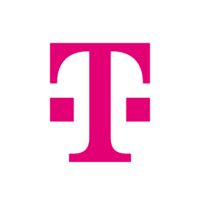
T Hub - IT Cloudification Specialist
T-Mobile Polska S.A.
Warsaw
Employment contract
Senior
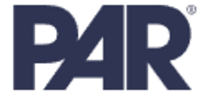
AI/
PAR
Remote
B2B contract
Senior
Od 5 000 USD

Senior Fullstack Developer (.NET & React)
emagine Polska
WarsawRemote
Contractor
Senior
Do 30 400 PLN

Business Analyst (AEM)
ERGO Technology & Services S.A.
WarsawGdansk
Employment contract
Mid/Regular

Senior CSIRT Specialist
ERGO Technology & Services S.A.
WarsawGdansk
Employment contract
Senior

Senior Software Engineer (ServiceNow)
ERGO Technology & Services S.A.
WarsawGdansk
Employment contract
Senior

Product Owner (SAP SuccessFactors)
ERGO Technology & Services S.A.
WarsawGdansk
Employment contract
Mid/Regular
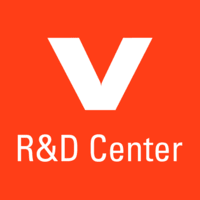
Senior Embedded Function Developer
R&D Viessmann Climate Solutions PL
Remote
B2B contract/Employment contract/Other
Senior

Fullstack Developer
Develocraft
Remote
B2B contract
Mid/Regular
12 800 - 17 600 PLN

Test Lead (SimCorp)
ERGO Technology & Services S.A.
WarsawGdansk
Employment contract
Lead / Principal

Senior Software Engineer (IAM)
ERGO Technology & Services S.A.
WarsawGdansk
Employment contract
Senior

Senior Software Engineer
Qualtrics
Krakow
Employment contract
Senior

Senior SAP Consultant (TRM or FSCD)
ERGO Technology & Services S.A.
WarsawGdansk
Employment contract
Senior

Data Engineer (Databricks)
ERGO Technology & Services S.A.
WarsawGdansk
Employment contract
Mid/Regular
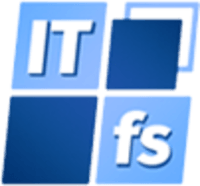
Salesforce Developer
ITFS Sp. z o.o.
Brussels
B2B contract
Senior
24 000 - 30 400 PLN

Product Owner/
ERGO Technology & Services S.A.
WarsawGdansk
Employment contract
Mid/Regular

Senior Software Engineer (Test Automation/
ERGO Technology & Services S.A.
Warsaw
Employment contract
Senior

Full Stack Developer
Aristocrat
Krakow
Employment contract
Senior
Do 7 200 USD

Full Stack Developer
Aristocrat
Warsaw
Employment contract
Senior
Do 7 200 USD

Senior Software Engineer (Databricks)
ERGO Technology & Services S.A.
WarsawGdansk
Employment contract
Senior

SAP Consultant (TRM)
ERGO Technology & Services S.A.
WarsawGdansk
Employment contract
Mid/Regular
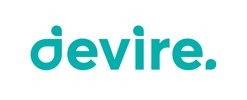
Consumer Insights Associate
Devire
Warsaw
B2B contract
Mid/Regular
6 700 - 10 000 PLN

DB Developer
Aristocrat
Krakow
Employment contract
Mid/Regular
Do 7 500 USD

DB Developer
Aristocrat
Warsaw
Employment contract
Mid/Regular
Do 7 500 USD

Data/
ERGO Technology & Services S.A.
WarsawGdansk
Employment contract
Mid/Regular

Senior Software Engineer (SAP ABAP Developer)
ERGO Technology & Services S.A.
WarsawGdansk
Employment contract
Senior

.NET Developer
Aristocrat
Warsaw
Employment contract
Mid/Regular
Do 6 000 USD

.NET Developer
Aristocrat
Krakow
Employment contract
Mid/Regular
Do 6 000 USD

Senior IT Support Specialist (OpenText)
ERGO Technology & Services S.A.
WarsawGdansk
Employment contract
Senior

Project Manager
ERGO Technology & Services S.A.
WarsawGdansk
Employment contract
Mid/Regular

Senior Embedded Engineer
Devire
Remote
B2B contract
Senior
25 000 - 29 000 PLN

Frontend Game Developer
Immense Group
Pietà
Other
Senior

Solution Architect (Observability)
ERGO Technology & Services S.A.
WarsawGdansk
Employment contract
Senior

Application Security Engineer
ERGO Technology & Services S.A.
WarsawGdansk
Employment contract
Mid/Regular
Popular roles
BackendIT AnalystDevOpsFrontendFull-stackIT AdministratorProject ManagerQATesterMobileIT ArchitectIT SupportTech LeadEmbedded/System DeveloperScrum MasterCybersecurityUX/UI designerGameDevData Science/EngineeringSAP/ERP ConsultantAI/MLAutomation TesterBig Data
